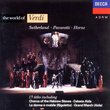| All Artists: Franz [Vienna] Schubert, Eric Schneider, Christine Schäfer Title: Schubert: Winterreise Members Wishing: 0 Total Copies: 0 Label: Onyx Classics UK Original Release Date: 1/1/2006 Re-Release Date: 8/8/2006 Album Type: Import Genres: Pop, Classical Styles: Vocal Pop, Chamber Music, Historical Periods, Classical (c.1770-1830) Number of Discs: 1 SwapaCD Credits: 1 UPC: 828768342428 |
Search - Franz [Vienna] Schubert, Eric Schneider, Christine Schäfer :: Schubert: Winterreise
 | Franz [Vienna] Schubert, Eric Schneider, Christine Schäfer Schubert: Winterreise Genres: Pop, Classical |
Larger Image |
CD DetailsSimilar CDs
|
CD ReviewsIncisive reading David G. Tegnell | Chapel Hill, NC | 11/24/2006 (5 out of 5 stars) "From the Gramophone review by Alan Blyth, 9/06: "Christine Schäfer goes at the work with a will, singing it in an urgent, rather aggressive way that provides little solace to the ear. She hurries the music along, and given that hers is very far from being the ideal voice for the work, the impression left is rather a superficial one: sopranos tackle the work at their peril. Add her partner's rough-hewn, over-recorded support and the disc is something of a write-off." It would be unfortunate if Blyth's review were to discourage listeners from investing in this lovely recording. The reading by Christine Schafer and Eric Schneider is anything but superficial. These performers bring to the cycle a modernist sensibility: Schafer filters Schubert through Schoenberg and Berg, not infrequently applying hints of sprechstimme. Schneider, who accompanied Christine Oelze on her Webern recording, is a full partner in this approach. The soprano voice is in no way inappropriate. The text is of course metaphorical; the narrator only nominally male. In her interpretation, Schafer discovers Goethe's fragile and unstable Mignon at the heart of the German Romanitic sensibility (Schafer has recorded Schubert's Mignon settings for the Hyperion Schubert series). And further, she delineates the relationship between Winterreise's harrowing vision of alienation and that of Schoenberg's Pierrot Lunaire. Perhaps only a female singer could bring out these aspects of the cycle. By no means are all of the tempos hurried. Schafer takes Gute Nacht at a brisk pace, treating it with detachment--as exposition, rather than autobiography. But throughout, Schafer selects drammatically appropriate tempi, and invariably finds rhythmic character that many other singers miss. With the addition of a perfect legato, she makes each piece cohere, as song." A beautifully stark presentation Tom Lawrence | Cambridge, MA USA | 10/19/2006 (5 out of 5 stars) "Christine Schäfer doesn't wear her heart on her sleeve in this recording of Winterreise, she keeps it locked in the icebox. Instead of using her high soprano to embody the protagonist, she sings with understated dispatch (almost a whisper in some passages) to paint Schubert's bleak landscape. In doing so she magnifies the suppressed anguish of the wanderer. Accompanist Eric Schneider keeps the journey moving with a brisk, light touch. The packaging is equally stark -- raised letters on a white cover as if the title were buried in snow; the poems printed one per page surrounded by blankness; an absence of commentary. Each song is displayed in uncluttered focus, letting the music speak for itself. The first few bars are disorienting; the quick pace and trebly voice will make you think this disc is playing at the wrong speed. The 'Chipmunks' effect soon passes as you are drawn into the psychological drama. One is hesitant in laying out $20 for yet another Winterreise, but this chilling performance is well worth the money." Harrowing and beautiful L. Gallagher | Los Angeles, CA United States | 11/29/2006 (5 out of 5 stars) "I agree completely with David Tegnell's review, posted above. With all due respect to the eminence of Alan Blyth, Blyth's emphatic resistance to the modernist reading undertaken by Schafer and Schneider not only discounts the musicological trajectory that justifiably links Schubert's idiom with twentieth-century innovations, it also creates the impression that "Winterreise" lies, definitely, outside Schafer's "Fach." Those who love this cycle should buy this disc and listen for themselves. Nothing -- especially when you consider the already well-stocked library of female versions of the cycle, some of which have attained iconic status -- indicates that the material is out of bounds for Schafer. More to the point, there is a complex, musky character to Schafer's timbre -- a feature her voice shares with that of her wonderful German compatriot Dorothea Roschmann, also a superb exponent of lieder -- that lends itself startlingly well to the landscape of depression, muted nostalgia, and eviscerated hope conveyed by music and text. Listening to Schafer, I cannot help thinking of the way in which celebrated accounts of the cycle by bass-baritone voices (Hotter, Fischer-Dieskau) present an acoustic image of Everyman in extremis. Like her female predecessors -- including Fassbaender, Ludwig, and Stutzmann -- Schafer skillfully employs the resources of her voice to convey not so much the voice of Everyman as that of No One. Hers is a chronicle of someone already moribund, already en route to becoming absent. (And, unlike Fassbaender and Ludwig, she has the advantage of recording the cycle while still in full possession of her vocal skills.) Schneider, by virtue of the pristine but radically unsentimental pacing of his accompaniment, is an ideal partner. I wouldn't want to be without Fischer-Dieskau's or Matthias Goerne's versions, but among female traversals only Nathalie Stutzmann's powerfully moving version, in contralto register, offer a comparably gripping account of this essential work."
|


